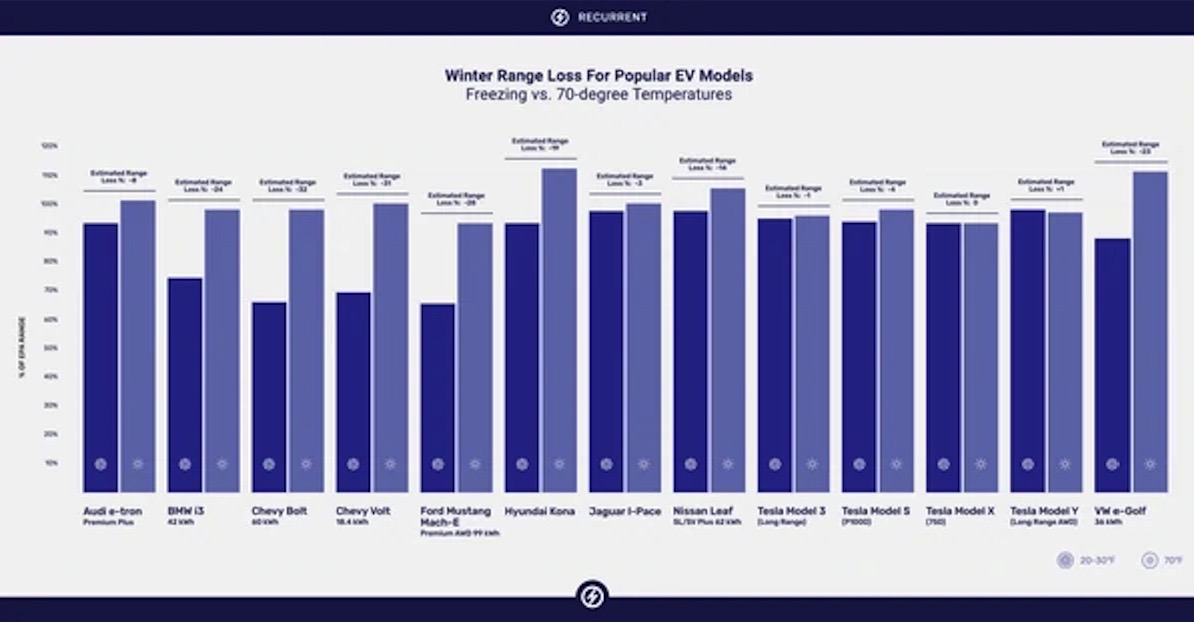All electric vehicles experience some loss of range in cold weather, as cold temperatures slow down the chemical processes in the batteries, which must also spend energy heating the car's interior. Nevertheless, Tesla cars performed at their best, showing the smallest loss of range among all the cars tested.
According to the data presented in the chart, we can see that Tesla is the only manufacturer with a vehicle—Model X 75D—that did not have a loss of range at low temperatures. The other cars of the company, Model 3 Long Range and Model Y Long Range, show only a 1% loss in range. Model S P100D shows a 4% loss of range. Jaguar E-Peace also showed good results, losing only 3% of its range.

The worst results were shown by the Chevy Bolt and Chevy Volt, which lost 32% and 31% of the range, respectively. This is a very serious loss of range that can create significant problems for owners and make it difficult to use the vehicle during the cold season. The Ford Mustang Mach-E also did not perform well, finishing only third from the bottom of the list; the car loses a whopping 28% of its range, which should be taken into account by consumers living in colder regions before purchasing it. German BMW i3 and VW e-Golf are also at the bottom of the list, losing 24% and 23% of range respectively.??A more or less good result was also demonstrated by the Audi e-trone with an 8% loss of range. While this calls for adjustments to day-to-day charging and driving, it must be admitted that they will not be as significant as in others vehicles. Nissan Leaf showed a 14% loss of range and Hyundai Kona, 19%.
Full article at link....
Read Article